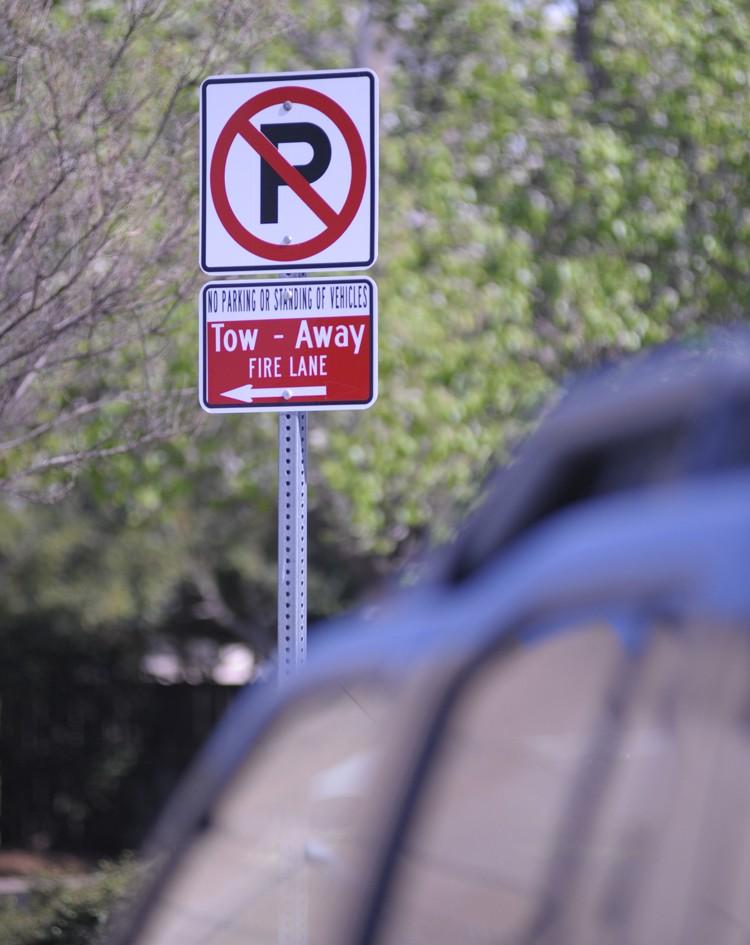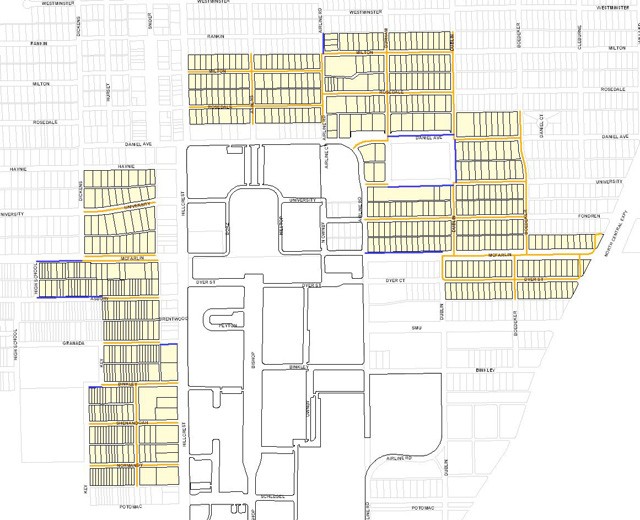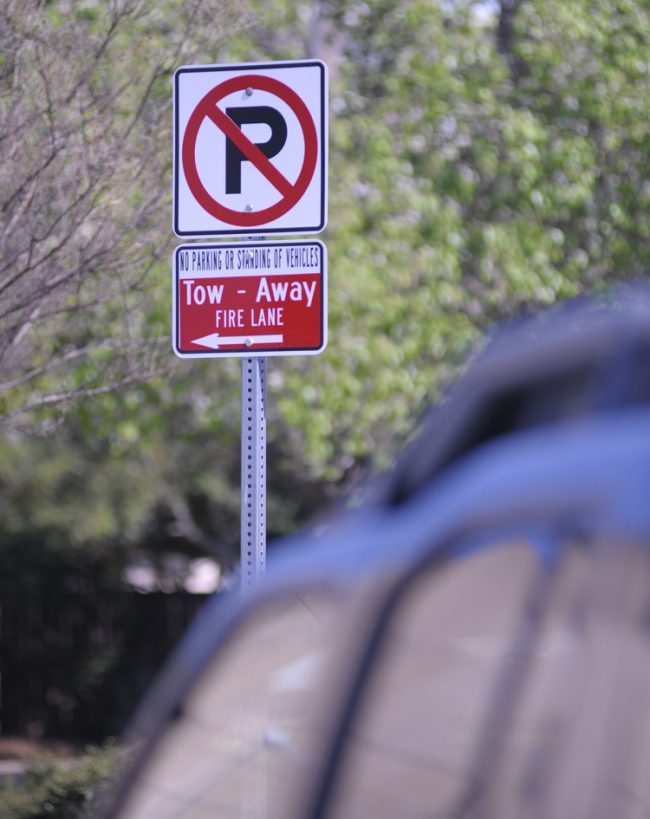
(LEE GLEISER/The Daily Campus)
Old habits die hard, but they will need to die soon for SMU students and employees parking in the residential areas around campus. The University Park City Council unanimously approved an ordinance to establish a residential parking district at its city council meeting Tuesday, March 15.
The new plan will require anyone parking on streets in the district to have a parking permit. The restriction will apply 8 a.m. to 5 p.m. Monday through Friday. Residents of the district will receive two permits per household at no charge and will be able to request temporary permits for guests. Students and SMU employees will no longer be able to park on these streets even for the two-hour limit currently in place.
The district includes areas to the north, west and east of SMU’s campus as shown in the map that Police Chief Gary Adams presented to the council. He and his department will be charged with managing and enforcing the new parking restrictions.
The plan is the result of a nearly year-long study in response to complaints by University Park residents about the lack of available street parking.
Kimberly Anbouba, a resident on the 3400 block of Shenandoah feels the situation is negatively impacting property values and has made it difficult to sell her home. Since she first raised concerns, there have been studies, meetings, a public hearing and finally the ordinance creating the residential parking district.
“This is not going to be a final product,” Mayor W. Richard Davis said. “This is our opening program and it will be massaged.”
Anbouba won’t feel good about the plan until she has a sign in front of her house and a parking permit in her hand. That won’t happen until Aug. 1.
Other University Park residents expressed concern about the plan.
Susan Ragland lives on a block with several multi-family dwellings. If those renters each receive two parking permits they will now be able to park on the street all day long as residents.
Other residents expressed their concern about the two parking permit limitation. Many have several kids who drive and they won’t receive enough permits for all the cars in their household.
By far the biggest concern expressed both at the public hearing on Feb. 22 and again Tuesday night was by residents who feel the plan doesn’t solve the problem. Some expressed concern that their blocks are not included in the district. Many feel the 8 a.m. to 5 p.m. enforcement does not address the problem.
Sororities hold their meetings on Monday nights and cars pack the streets near sorority row. Kathy Meza lives on the 2900 block of Rosedale, a block not included in the district.
“I already have problems on Monday night, sorority night, and now they are all going to move back onto my block to park,” she said.
Don Bush lives on the 3000 block of Milton. He requested his block not be included, and it is now the one exclusion being made from the current map.
“There is no problem where I live. I feel that (the district) is a little broad and it is going to push people down to the east of Milton and parking is worse to the east.”
Director of Park ‘N Pony Mark Rhodes said, “There isn’t a problem of parking at SMU, there is a problem of perspective.”
With between 6,000 and 6,600 parking spaces on campus, Rhodes feels there are enough spaces for everyone at SMU who needs to park.
“These numbers are comparable with our peer institutions. We are at par or better than other institutions like Vanderbilt, TCU and Rice,” He said.
However, the spaces aren’t where people want them to be.
“Location, location, location is everything,” Rhodes said. “People want to park next to the front door.”
The result is a domino effect. According to Rhodes, students and employees who don’t pay for a parking permit, park where they want to park and take up available spaces from those who have a permit. His response is consistent and effective enforcement.
“I wouldn’t call it draconian, I’d call it effective,” Rhodes said.
His office issues 20,000 citations in a year which average between $30 for an expired meter to $300 for parking illegally in a handicapped space.
Last year this generated nearly $568,000 in revenue for the University. The majority of that money goes toward but does not cover the cost of building and maintaining parking garages. It cost $15 million for the Binkley garage and the newest garage will cost $12 million.
“That’s $27 million spent on parking in the last five years, and that number doesn’t all come from permits and fees. The University subsidizes the cost.”
At the city council meeting Mayor Davis urged, “This is a joint project between the city and SMU. Within the last 15 years SMU has put in five parking garages. It spends $500,000 per year on a free shuttle service from DART’s Mockingbird Station.”
SMU sent an email to all students and employees informing them that starting this fall, SMU will require all students living on campus to register for a parking permit or opt out if they don’t have a vehicle.
In light of the new policies Rhodes said his job is to educate his customers.
“Ultimately our destination is to become a more pedestrian-oriented campus,” he said.

University Park City Council proposed parking permits to homeowners living near the SMU campus. (Graphic Courtesy of University Park)









